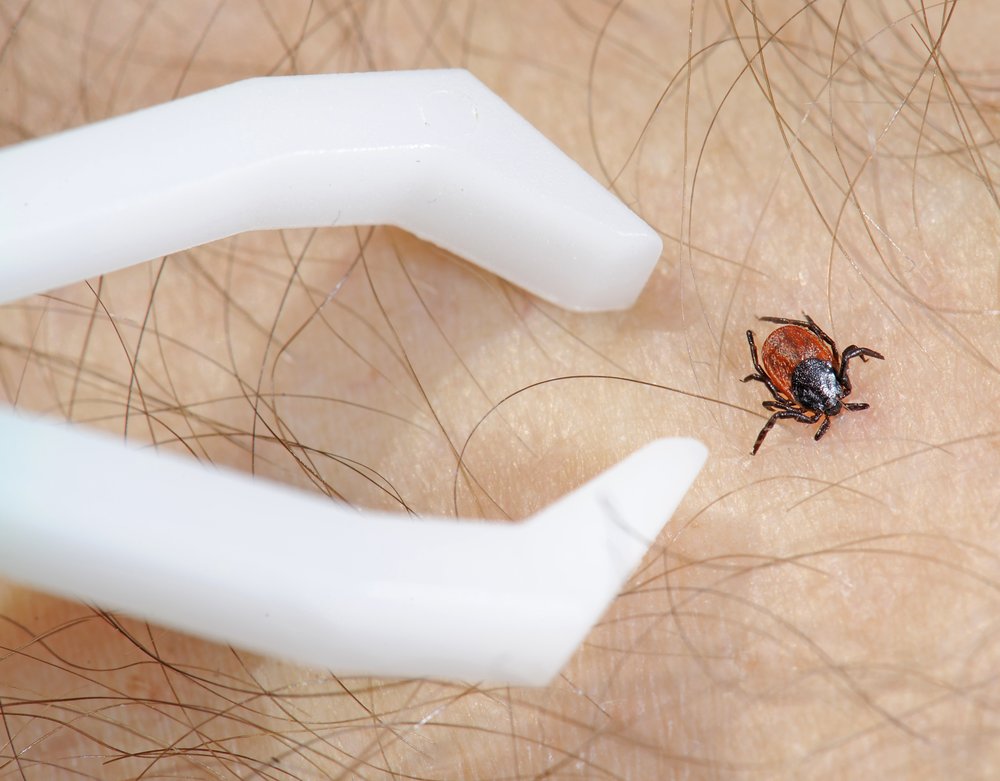NJ kids join national research trial for new Lyme disease vaccine
May 31, 2023, 9:01 a.m.
Rutgers University is one of 50 clinical trial sites for a Lyme disease vaccine that’s being tested nationwide on children aged 5 to 17.

Tick season is well underway in the Northeast, but this year, some New Jersey kids are heading into the woods with a new potential defense against Lyme disease.
Rutgers University is one of 50 clinical trial sites for a Lyme disease vaccine that’s being tested on children aged 5 to 17 in New Jersey and other parts of the country. Pfizer and the French company Valneva developed the vaccine, which involves three doses given over six months plus a booster a year later.
Children participating in the Rutgers branch of the study began receiving their first doses just a few weeks ago. Each site is enrolling between 50 and 100 children, for a total of 3,000 kids nationwide. About a quarter of the kids involved will get a placebo, while the rest will get the real thing.
For Taylor Naughton, who lives on five acres of land next to a game preserve in Allentown, a Lyme vaccine can’t come soon enough. She signed up her 6-year-old son Seamus when she saw an ad about it on Instagram. She said he has already had Lyme disease twice after playing in the woods near their house. Each time, she said, she found a tick on him, and he had symptoms including a bad headache and stiff neck.
“Both of these times we caught it right at the onset, so we were lucky that antibiotics cleared it up,” said Naughton, who has also had Lyme disease herself. She said Seamus received his first shot of the vaccine in April.
But she said she worries that antibiotics could be less effective if the bacteria that causes the infection, Borrelia burgdorferi, ever becomes resistant. Debate remains on whether this germ can develop drug tolerance in humans and if it contributes to chronic Lyme disease, as researchers continue to study the question.
The shot, known as VLA15, entered its third phase of clinical trials last August and has shown early signs that it can generate defenses against Lyme disease for children and adults with limited side effects, according to Pfizer. The phase 3 trial is scheduled to run through 2025 and aims to recruit 18,000 people in Europe and the U.S. living in areas where Lyme disease is prevalent.
The Northeast is a hot spot for Lyme disease, and New Jersey recorded an average of about 4,300 new cases per year prior to the pandemic. That’s among about 476,000 Americans diagnosed and treated annually for the disease, according to the U.S. Centers for Disease Control and Prevention. If left untreated, the infection can spread to the joints, heart and nervous system.

In the U.S., only black-legged ticks transmit Lyme disease when they bite, and the arachnids must be attached for at least 24 hours to do so. Symptoms can include a rash that looks like a bulls-eye as well as fever, chills and body aches. About 5%-20% of cases end up developing a chronic condition, according to Johns Hopkins and Columbia.
Dr. Sunanda Gaur, the principal investigator on the Rutgers trial, said the children in her study will be tested for antibodies and will also report whether they contract Lyme disease. She said she expects that children will develop some level of immunity before the full 18-month process is complete.
“It is a vaccine that's going to be most useful for people who are living in areas that have high incidence of Lyme disease and who do lots of outdoor activities – you know, camping, hunting, those types of exposures,” said Gaur.
Gaur’s trial is just a small part of the research that will go into determining whether the vaccine should hit the market.
But the research has had some setbacks. Pfizer halted clinical trials at research sites operated by a third party earlier this year after finding that they violated the U.S. Food and Drug Administration's Good Clinical Practice guidelines.
If it’s successful, this would be the first human vaccine approved for Lyme disease since a shot known as LYMErix was pulled from the market 20 years ago. That vaccine was approved by the FDA, but later faced public backlash over perceived side effects. The vaccine was shown to be about 75% effective in preventing Lyme disease in clinical trials on adults. But some public health experts questioned whether the vaccine was needed, with Dr. Chinh Le of Kaiser Permanente Medical Center dismissing the shot as a "yuppie vaccine" for people who vacation on Cape Cod.
Later, some vaccine recipients filed a class-action lawsuit against the manufacturer, alleging that they developed symptoms of arthritis, which is also a long-term complication of Lyme disease. Follow up studies found no greater incidence of arthritis among recipients of the LYMErix vaccine, but public demand for it had already plummeted, according to a Time magazine account of the incident.
Gaur said this new vaccine works differently. “The part of the protein that was used to make the [previous] vaccine that was potentially implicated in that side effect of joint inflammation – which, again, was never really proven – is no longer in this particular vaccine,” Gaur explained.
To date, she said, only minor side effects such as temporary inflammation at the site of the shot have been observed.
Thousands of NYC buildings still burn dirty fuels, as owners struggle with looming ban Tick season is back in force: Why outdoorsy NYers should check themselves every 15 minutes Climate change is making NJ and NY into wildfire hotspots